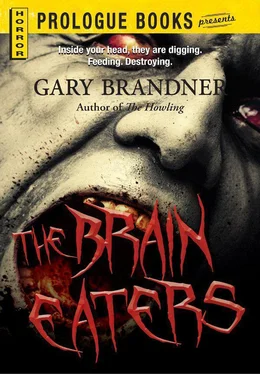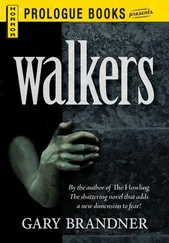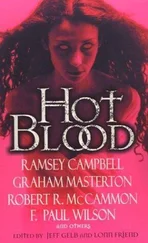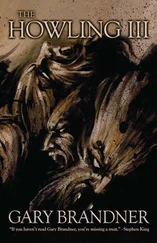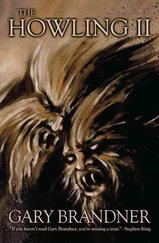Dena took a stool and ordered a grilled cheese sandwich from Noreen. She laid the folded copy of the Herald on the counter beside her, wondering why she had brought it in.
Noreen the waitress, famous for having the reddest hair in Waupaca County, leaned across the counter to look at the paper. She turned it top to bottom.
“Hey, I know this guy.”
“What guy?”
“This one here with his picture in the paper.” She pointed to the photograph of Hank Stransky. “What’d he do?”
“Broke up a tavern in Milwaukee. Where do you know him from?”
“Right here. ‘Henry A. Stransky,’” she said, reading from the photo caption. “Yeah, Hank, that was him. Came in every day with the crew was fixing the highway couple weeks ago. Seemed like a nice guy. Kidded around a little the way guys do, but no passes or anything. Family man all the way.” She read into the news story. “Jeez, I can’t hardly believe he’d do something like this. I guess you never know about people.”
Noreen moved off to take care of another customer. Dena turned the newspaper back around and looked again at the picture of Hank Stransky. Could she have seen him with the highway crew one of the times she drove past? She remembered the big men, their bare arms lightly oiled with sweat, wearing orange hard hats with names stenciled on them. Maybe such a fleeting memory was what made the story stick in her mind.
She took a bite of her sandwich, sipped her coffee, and tried to think of other things.
Noreen came back and leaned companionably on the counter. She said, “Terrible thing about Andrea Olson, isn’t it.”
“What’s that, Noreen?” A little local gossip might be just what she needed.
“You know the Olsons, man and wife own the farm up past the Saltzman place?”
“No.”
“Both of ‘em getting on in years now. Used to come into Wheeler a lot. He still does. She’s crippled up and can’t hardly leave the house.”
“Too bad.”
“Anyway, their granddaughter, Andrea — nice, quiet girl, everybody said, just married some fella out West — went completely crazy. On her wedding day, no less. She stabbed her brand-new husband to death, slashed a few other people, then got killed herself trying to jump through a plate-glass window. She was just back here, Andrea, not two weeks ago. I didn’t see her myself, but — ”
“You say she was here?”
“That’s right,” Noreen said. “She came to visit the old folks before she got married. The old man drove her back to Milwaukee not two weeks ago.”
Dena took a moment to sort out her thoughts before speaking. “That would be about the time the construction crew was working on the highway.”
Noreen inserted a careful forefinger through her coiffure and scratched her scalp. “Yeah, I guess it was, come to think about it.”
Another customer came in, and Noreen moved off to take his order. Dena sat for a moment thinking about the bride who had stabbed her young husband to death out West. Then she returned to the newspaper and read again the article about Hank Stransky. The reporter had a by-line at the top of the story. Dena took out a pen and underlined the name. Corey Macklin. Then she finished her sandwich and left the café.
• • •
The bizarre death of Andrea Olson Keith was also noted in the tenth-floor suite of a San Francisco hotel. The story was being discussed by an attractive Oriental woman on a local television channel. Anton Kuryakin sat in a chair pulled close to the set and listened carefully. He was a broad-faced man with thick peasant features. His brow was creased in concentration.
So intent was Kuryakin on the screen that he did not hear Viktor Raslov enter the room. Raslov was a small, intense man with steel-rimmed spectacles that kept slipping down the narrow bridge of his nose. He stood for a minute watching the other man before he spoke.
“Enjoying the American toy, are you, comrade?” The tone was meant to be sportive, but behind the lenses of his spectacles Raslov’s eyes were cold.
Kuryakin did not turn around. He said, “Have you heard this news report, Viktor? A girl murdered her bridegroom with a knife, then rushed about the restaurant stabbing people at random. She died as she flung herself through a window.”
“This is a violent country.”
“Yes, I know, but I feel this incident should have special meaning for us.”
Raslov became interested. “How is that?”
“In the newspaper account it was mentioned that the young woman had but recently returned from a visit to her grandparents in the state of Wisconsin.”
Now Raslov was leaning forward. “Did the grandparents by chance live near the Biotron factory?”
Kuryakin turned to face the older man. “Only a few miles away.”
“Aha. Then our suspicions were correct.”
“Of course. I had no doubt what they were doing there.”
Raslov’s eyes flicked about the room. He tapped his ear with one finger and pointed to the walls. “Perhaps we should discuss it another time.”
Kuryakin missed the cautionary signal. “This is the second such report.”
“Second?” Raslov forgot momentarily his warning about listening devices.
“The first was a small item in the newspaper. A worker went berserk in a public tavern in Milwaukee. He wounded a number of bystanders before dying himself.”
“And the connection?”
“This man was working on the highway near the Biotron factory.”
Raslov regarded Kuryakin thoughtfully. “Then it is quite possible — ” Abruptly, he remembered his surroundings and cut off the sentence. He lay a finger across his lips.
This time Kuryakin nodded his understanding. He ran thick fingers through his wiry gray-black hair. “Should we not take some action before …?” He left the sentence unfinished.
“I have an appointment this afternoon with our embassy. I will discuss the matter with our people there.” Raslov started for the door.
On the television screen a young black man began talking about baseball. Kuryakin snapped off the set. “I will get my coat.”
With his hand on the doorknob, Raslov turned. “There is no need for you to be at the meeting. Stay and enjoy the American television. Perhaps your Chinese woman will return.”
Kuryakin started to protest, but Raslov had turned away and opened the door into the hall. He spoke briefly to the two men who stood outside — thick-shouldered, short-haired men wearing suits that did not fit. They straightened their posture when Raslov spoke, glanced into the room at Kuryakin, and nodded. The door closed, and Kuryakin was left alone.
It was rumored around the offices of the Milwaukee Herald that Doc Ingersoll had once actually attended medical school. There was a variety of colorful stories about why he dropped out. Or was kicked out. Or maybe even graduated to medical practice and lost his license. Doc never discussed his past, and nobody ever asked him about it. The Herald was sort of a foreign legion among newspapers. What a man did before was his own business.
Ingersoll was a gaunt man with an unhealthy gray complexion and a cigarette seemingly growing from the corner of his mouth. He wore suits that looked like the 1940s and was the only man on the staff who wore a hat when the sun shone. Doc’s clothes, his desk, even the floor wherever he happened to be standing, were continually powdered with cigarette ash.
Doc’s title at the Herald was science editor. His job consisted largely of taking wire-service copy that could be lumped under science and medicine and chopping it to fit whatever holes were left in the page dummies. He also wrote and rewrote periodically an article warning of the dangers of drugs and alcohol. The Herald ran it whenever some authority questioned their commitment to community service. It was a subject with which Doc Ingersoll was familiar.
Читать дальше
